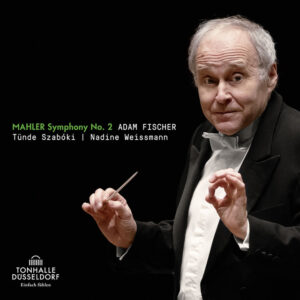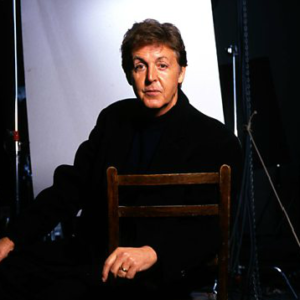GRAMOPHONE Review: Mahler Symphony No. 2 ‘Resurrection’ – Düsseldorf Symphony Orchestra/Fischer
 As Adam Fischer’s Dusseldorf Mahler cycle has evolved a clearer picture has emerged of his choices and priorities. He’s a very sympathetic and clear-headed Mahlerian whose nose for beauty and atmosphere (clearly led by very personal convictions) is not always in step with his sense of the music’s newness and daring.
As Adam Fischer’s Dusseldorf Mahler cycle has evolved a clearer picture has emerged of his choices and priorities. He’s a very sympathetic and clear-headed Mahlerian whose nose for beauty and atmosphere (clearly led by very personal convictions) is not always in step with his sense of the music’s newness and daring.
That’s something that is really hard to re-engender, of course, but as orchestral standards have risen over the last few decades so too has a need to take greater risks – or rather to take Mahler at his word when he seemingly asks for the impossible. There’s a moment I always cite in the first movement of the Second Symphony and it comes at the cliff-edge of that passage in the development which has us hurtling towards the abyss only to be pulled up short by a brutal and remorseless sequence of chords piled high with dissonance. Most conductors – including Fischer – insert an unwritten ritardando in the bar before to ‘prepare’ us for what follows. And yet Mahler’s very clear direction molto pesante is in effect the musical equivalent of jamming on the breaks as we land on the first of those momentous chords. Bernstein pulls it off. So now does Chailly. It’s a tiny detail with huge consequences.
On the credit side Fischer sets the scene for this heart-stopping event so atmospherically as the slow sepulchral tread of string basses ushers us into the second phase of that development. His quietudes throughout produce a real edge-of-seat suspense. I love what he does with the mystical emergence of the second subject and Mahler’s beautiful embellishment of it towards the end of the movement. And yet the movement as a whole doesn’t feel as ‘revolutionary’ or as ‘precarious’ as we know it can.
The two inner movements – though impeccably executed – sound a little too well-honed to my ears, the second lacking the shadowy pervasiveness of what has gone before and what is to come, the third wanting in edgy rusticity. Even the cheesily sentimental close harmony trumpets in the trio are to my ears too urbane.
Nadine Weissmann – a Bayreuth Erda – brings an affecting soft touch to the still maternal voice of the Urlicht and Fischer’s vision of the Resurrection finale is stage managed to perfection. Its seismic upheavals and disintegrations are pretty sensational – though I increasingly have problems with that inane march – while the offstage band effects are magically at the very edge of our hearing. When counterpointed with the birdsong of solo flute just prior to the breathtaking entry of the chorus the effect is of a wondrous post-apocalyptic clarity.
The ‘Heaven’s Gate’ coda – gloriously underpinned by thunderous organ pedal – brings real uplift to the resurrection hymn, more Jurowski than super-slow Bernstein but as magisterial and heart stopping as either. Let’s just say I emerged from Fischer’s performance more stirred than shaken. In awe? Not this time. Jurowksi and Bernstein are but two of the names that elicit that emotion in me.




